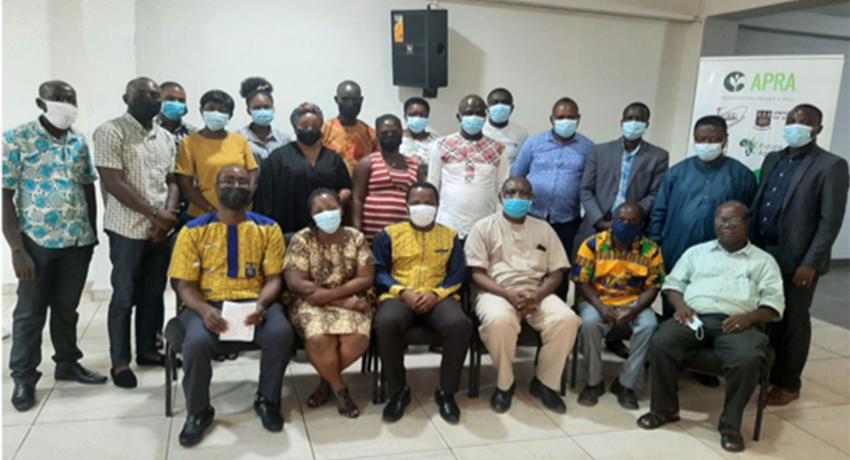ISSER Research Fellows, Dr Fred Dzanku and Dr Kofi Asante engaged farmers, policy makers, oil palm companies and media representatives in a dissemination workshop to share and discuss findings of the Agricultural Policy Research in Africa (APRA) project. It was held on 17th March, 2021 at the Takoradi Regional Library, in the Western Region.
The APRA project aims at analyzing the impacts and outcomes of pathways to agricultural commercialization on rural poverty, empowerment of women and girls and food and nutrition security in Ghana and six other Sub-Saharan Africa countries.
Opening the workshop, Dr Dzanku, principal investigator for APRA Ghana said: “We recognize the value of stakeholder inputs in bolstering the relevance and utility of research, and that is why we are pleased to have you join us today to discuss findings of this important project.”
The workshop featured two main presentations: findings from APRA Ghana research and implications by Dr Asante, co-investigator; and a brief overview of APRA research in Ghana by Dr Dzanku, who also led a discussion on proposed policy nuggets. Discussions were held in English and vernacular to facilitate the participation of all.
Participants, in turn, expressed gratitude to the research team for the opportunity to learn from and share their insights on the findings.
The outcome of discussions will be incorporated into subsequent analyses and reports on the APRA project, and contribute to informing policy and practices related to rural poverty, empowerment of women and girls and food and nutrition security.
The five-year (March 2017 – May 2021) APRA project is part of a Research Programme Consortium funded by UK aid from the UK Government through the Department for International Development (DFID). It is expected to produce new information and insights into different pathways to agricultural commercialization in order to inform policy and practices related to rural poverty, empowerment of women and girls and food and nutrition security.

